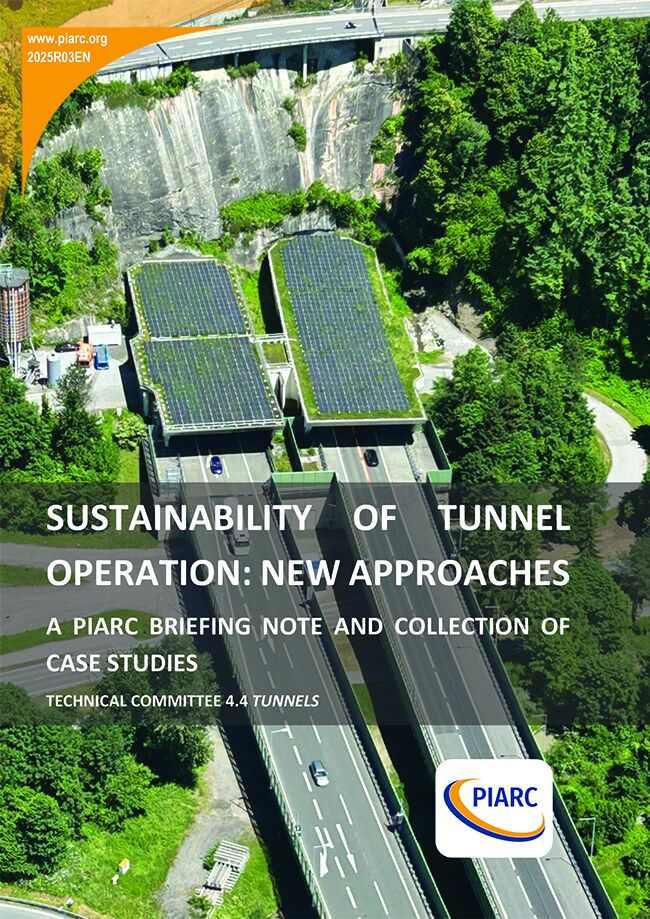Sustainability of Tunnel Operation: New Approaches - A PIARC Briefing Note And Collection Of Case Studies

Sustainability means creating a new economic and social model that can respond to today’s environmental challenges. Applied to road tunnels, this concept includes the environmental aspects of reducing energy consumption and emissions, and minimising impacts over the tunnel’s full life cycle. The economic aspects of modern road tunnels focus on keeping costs under control over time, supporting innovation, and helping create local jobs. Ultimately, the social aspects, which are about making tunnels safe, accessible, and well-integrated into their urban surroundings must not be left out of consideration. In this context, road authorities and infrastructure managers are increasingly expected to promote energy efficiency and adopt sustainable methods for the construction and operation of public roads including road tunnels. A large part of the operational expenditure in this regard is related to the provision and consumption of electrical energy. Considering that road tunnels are complex and costly objects with a life cycle of typically more than 80 years, it becomes clear that a concept for sustainable and energy-efficient road tunnel operation is of great importance.
The aim of this briefing note including a collection of case studies was therefore to gather, evaluate and comment on international expertise related to measures aiming at the design and operation of road tunnels in a more sustainable way. In this document you will find several case studies written by experts from around the world that showcase different examples that are particularly suitable for providing an insight into the implementation of possible measures and their effects. While the case studies mainly focus on environmental and energy-related improvements, many of them also contain implicit benefits for social and economic sustainability, although such aspects have not been specifically analysed in this document. It became apparent that it was useful to divide the cases into 3 categories dealing with the topic from different perspectives but aiming to fulfil the same overall objective: A sustainable approach in tunnel design and operation:
1. Sustainability enhancements in tunnel design
2. Energy supply and resilience
3. Operation and organization
The added value of this briefing note consists of the description of approaches to the design and operation of road tunnels in terms of energy supply, energy demand, safety equipment used, life cycle-based design, impact of different operational phases, reporting and measurement of operational status and energy consumption. By referring to the state-of-the-art knowledge of international experts, this briefing note aims to give an insight into the latest developments regarding the topics covered and support decision makers, tunnel owners and managers, tunnel operators, designers, tunnel safety experts, safety officers and risk analysis specialists in the process of planning and deploying tunnel projects.
Information sheet
- Date: 2025
- Author(s): Comité technique / Technical Committee / Comité Técnico 2020-2023 4.4 Tunnels / Tunnels / Túneles
- Domain(s): Road Tunnel Operations
- Type: 2025R03EN - A PIARC Briefing Note And Collection Of Case Studies
- PIARC Ref.: 2025R03EN
- ISBN: 978-2-84060-
- Number of pages: 82